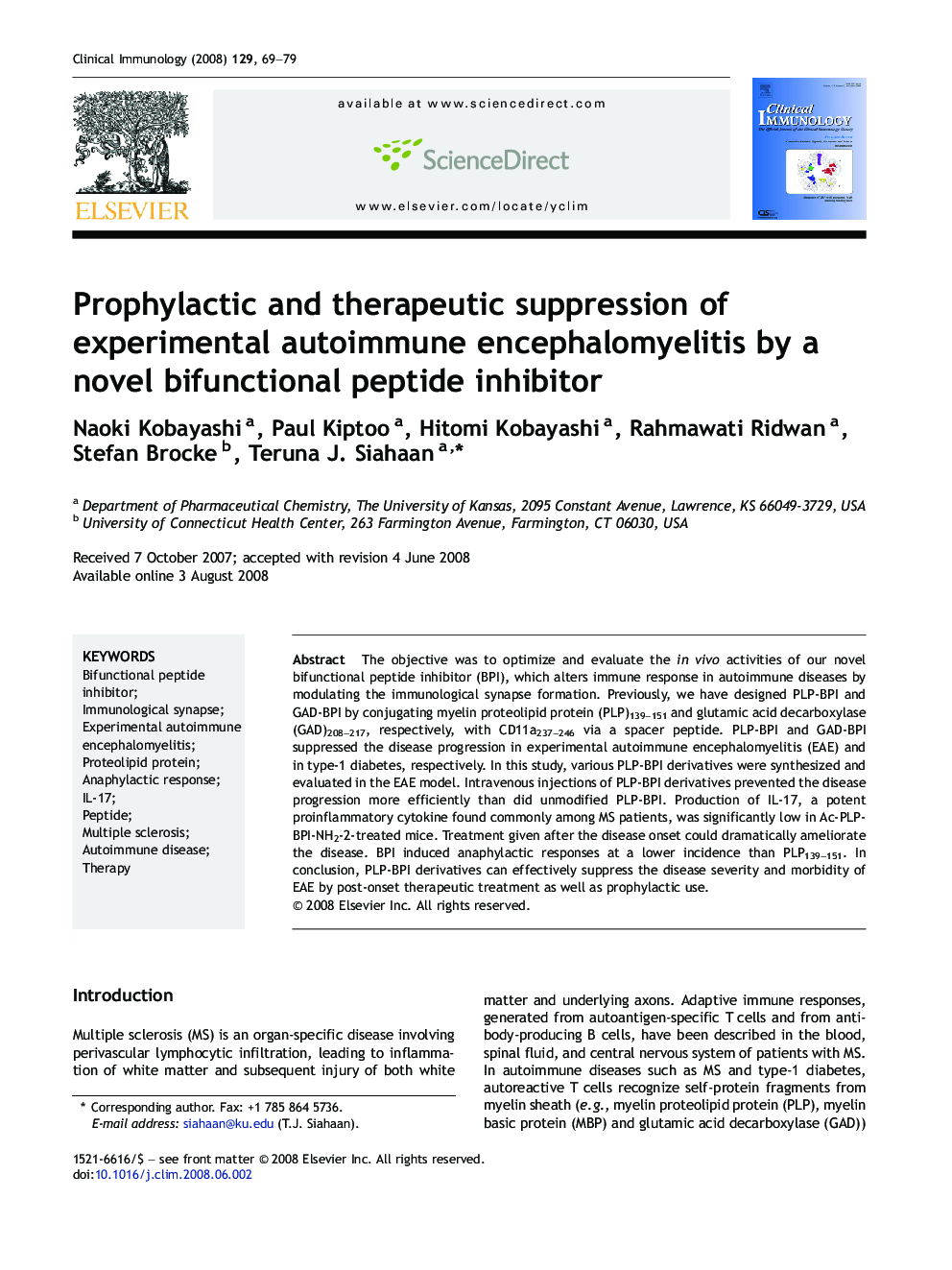| Article ID | Journal | Published Year | Pages | File Type |
|---|---|---|---|---|
| 3258297 | Clinical Immunology | 2008 | 11 Pages |
The objective was to optimize and evaluate the in vivo activities of our novel bifunctional peptide inhibitor (BPI), which alters immune response in autoimmune diseases by modulating the immunological synapse formation. Previously, we have designed PLP-BPI and GAD-BPI by conjugating myelin proteolipid protein (PLP)139–151 and glutamic acid decarboxylase (GAD)208–217, respectively, with CD11a237–246 via a spacer peptide. PLP-BPI and GAD-BPI suppressed the disease progression in experimental autoimmune encephalomyelitis (EAE) and in type-1 diabetes, respectively. In this study, various PLP-BPI derivatives were synthesized and evaluated in the EAE model. Intravenous injections of PLP-BPI derivatives prevented the disease progression more efficiently than did unmodified PLP-BPI. Production of IL-17, a potent proinflammatory cytokine found commonly among MS patients, was significantly low in Ac-PLP-BPI-NH2-2-treated mice. Treatment given after the disease onset could dramatically ameliorate the disease. BPI induced anaphylactic responses at a lower incidence than PLP139–151. In conclusion, PLP-BPI derivatives can effectively suppress the disease severity and morbidity of EAE by post-onset therapeutic treatment as well as prophylactic use.
